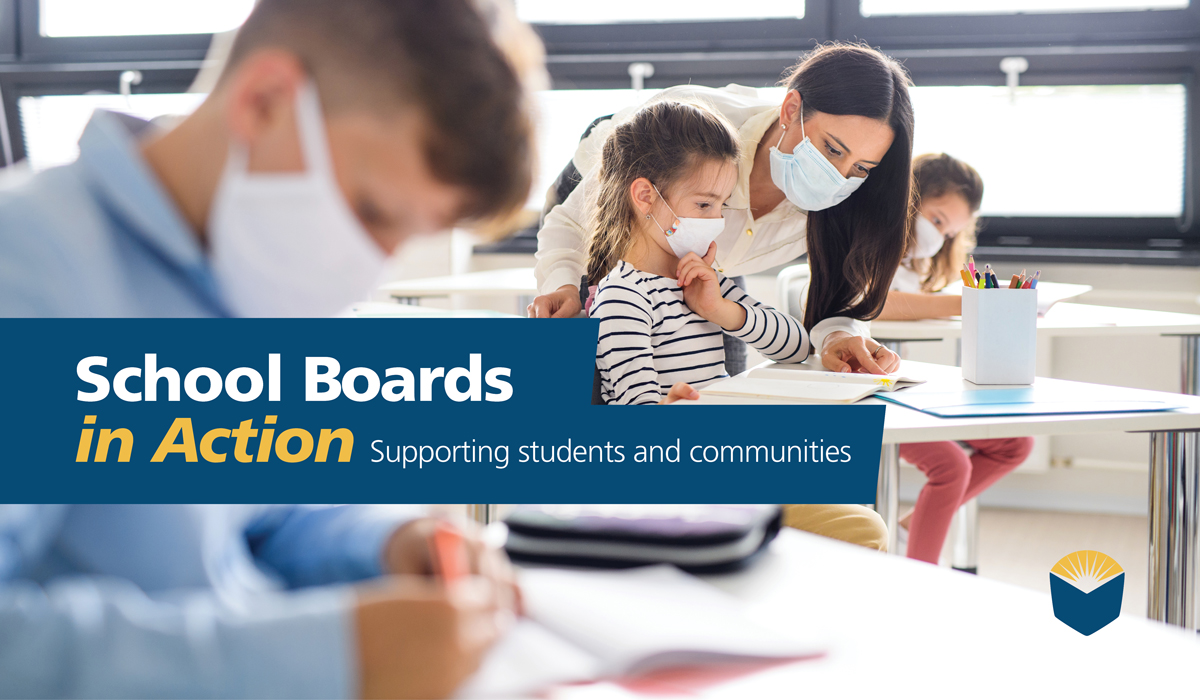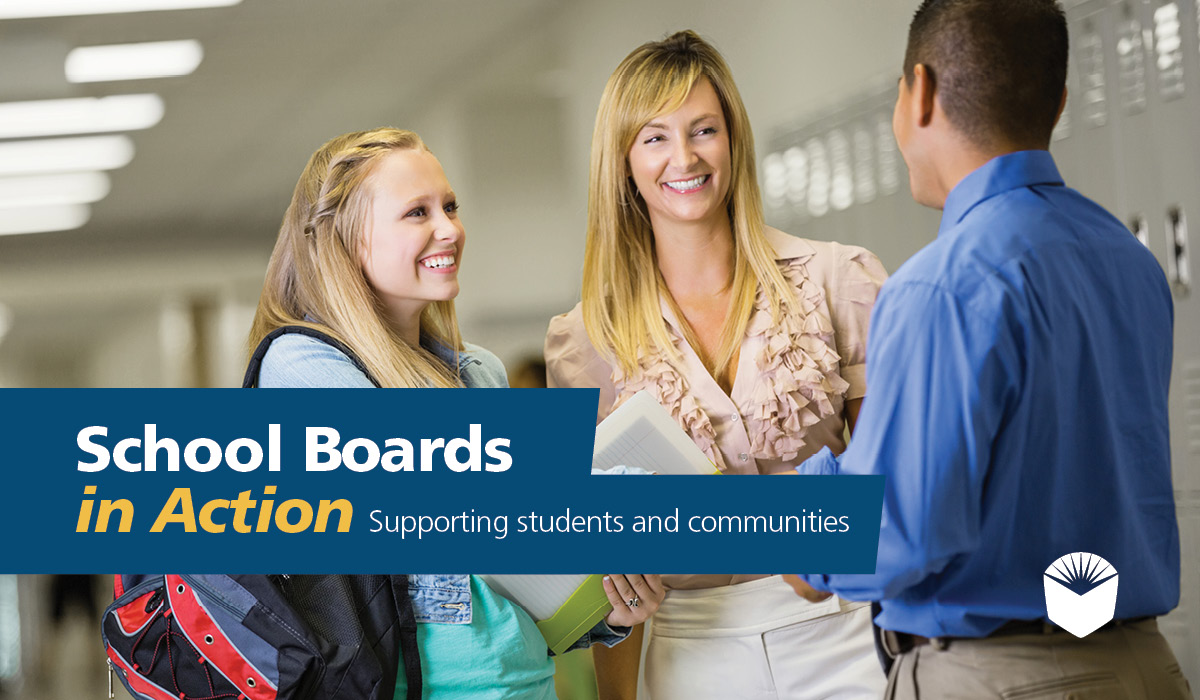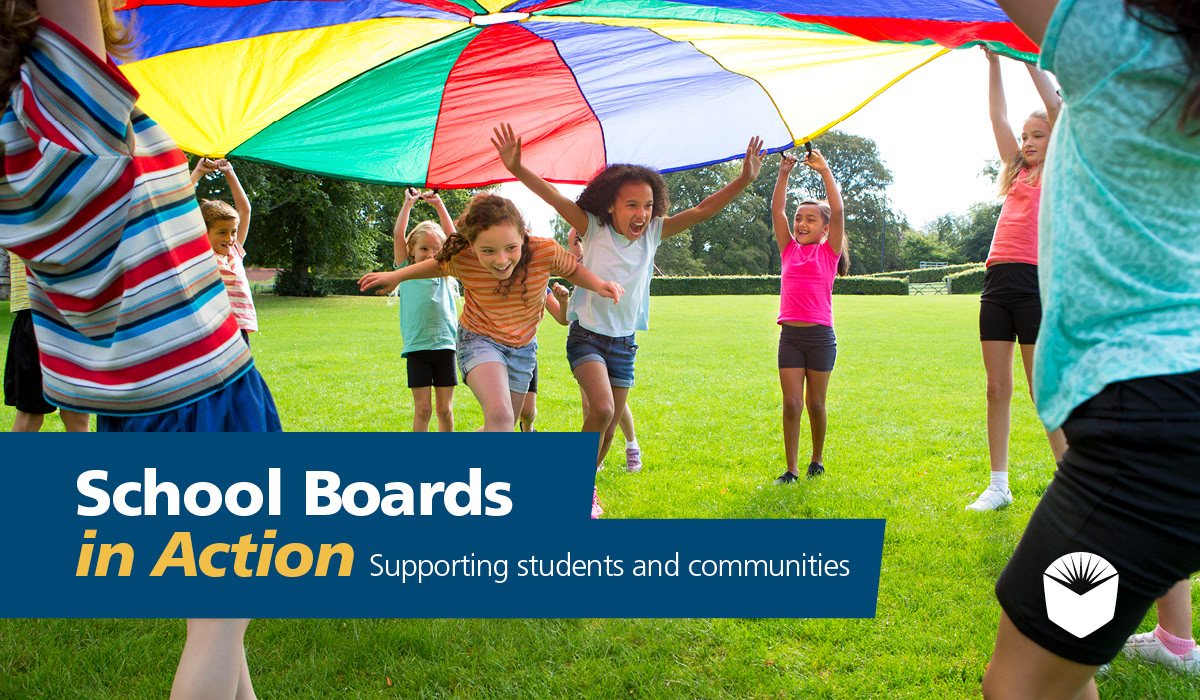In the midst of a global pandemic, local educational agency boards have continued working to support programs and initiatives that offer students the academic and social-emotional opportunities they need — no matter which mode of instruction they are in. CSBA’s 5 questions series gives board members a chance to share the accomplishments of their LEAs and their experiences during this challenging time in their own words.
Dr. Jeremy L. Gerson, Board of Education Trustee for Torrance Unified School District
What are the most successful initiatives your board has spearheaded during the pandemic?
When the pandemic first started, I thought that it would prevent any other progress. However, we have a hardworking and dedicated staff both at the district and school site levels. We are having a great deal of success working with our community and developing internally. Here are some of our successes:
When it comes to COVID restrictions, Los Angeles County has been the most restrictive in the nation. There were only 10 of the 80 public school districts in LA County open for in person instruction under the TK-2 waiver program. We were one of those districts because of the extensive work done over the summer. A task force was created with almost the entire teacher union leadership, other teachers, all categories of classified employees, parents and community organizations including the Torrance Fire Department and Torrance Police Department. The task force ran five committees with multiple subcommittees. I stayed in contact with the CEOs of our two top-100 hospitals, Torrance Memorial Medical Center and Providence Little Company of Mary Medical Center. They shared their census data and their contingency plans to keep us aware of the local situation.
Parents were surveyed and self-selected blended learning (BL), distance learning (DL) or home-based independent study. Teachers were surveyed to classify themselves into one of multiple categories. All teachers who had underlying health conditions (Category 1) or who lived with someone that had underlying health conditions (Category 2) were given DL assignments. Some teachers in Category 3 also received DL assignments. The rest were assigned to BL assignments. Then, students were programmed into the appropriate classes. This early planning has allowed us to be agile as the rules changed, and roll grades back safely into in-person instruction by being slow and deliberate:
- Oct. 5, 2020: High-needs students, including students with disabilities, English learners, foster youth and homeless youth populations
- Dec. 7, 2020: Transitional kindergarten and kindergarten
- Jan. 4, 2021: First grade
- Feb. 11, 2021: Second grade
- March 4, 2021: Third, fourth and fifth grades
On March 1, 2021, there was a school board meeting to plan for secondary schools returning to in-person instruction and discussion about high school athletic competitions. We have also implemented safety measures beyond California Department of Public Heath requirements. For example, we are operating two HEPA filter machines in each active classroom and approved the installation of bipolar ionization units. I believe our district has been a model of cooperation and collaboration to bring students back on to campuses.
We have continued the implementation of our Strategic Communication Plan. We employed a communications consultant, CliffordMoss, that surveyed our community. We completed our first community report, called the “State of our Schools,” that we mailed to all our city’s residents. We have trained our principals and are now training our office staff on communicating with the public. This has been presented at the last two CSBA Annual Education Conferences. What we are doing this year to further build on our previous success is to launch our Good Neighbors campaign and design a new Tough Decisions Protocol that is not just for the school board, but for every school site to use.
We have a diverse school board. As such, we are making significant progress in the areas of diversity, equity and inclusion (DEI). We are having our first DEI board workshop on March 31 to discuss what the district is already doing and for the board to give further direction for continued growth in this area. We have already approved and begun recruiting for the launch of our first two Spanish/English dual-immersion schools this fall. TUSD also started giving students and staff Yom Kippur as a holiday when I came onto the board; most other local districts have been giving this day off for years.
We are improving our academic programs and offerings. We launched a new music program that was teacher initiated. They contacted me, and I helped lead them through the approval process. Now, music students will have a digital portfolio that will follow them from middle school into high school. We also hope to launch a new learning management system next fall. I have been advocating for this for over a year, so I am excited that the rest of the board will see the presentation in April. We are working with El Camino Community College to expand our dual-enrollment and introduce early college programs. At the March 1 board meeting, staff introduced for board approval a new math course in conjunction with UCLA called data science.
We have also been installing new technologies to improve student safety. These digital clocks become message boards to send students, staff and visitors information during emergencies. In reality, COVID has been an, albeit forced, opportunity to innovate instructional practices and accelerate construction projects in areas where students are usually present. Our most pressing question right now should be what new habits can we keep when we return to our old ways?
What have been your board’s biggest challenges and how are you working to overcome them?
Restoring community trust in the school board. The previous school board seemed to have battled with everyone. They imposed a contract and calendar making enemies of staff and unions. They had a beloved adult school property labeled as excess property with plans to sell or lease it. Now, we have five new school board members and a new superintendent, so the entire team has changed. I just spoke to a principal today who said that they thought the district would be in dire straits with the unions for at least a decade, but the change is already apparent to this principal. It was hard work, but the feelings of betrayal and resulting animosity are fading. The result is open schools during a pandemic and contracts that were negotiated and brought up to date, including the Yom Kippur calendar changes that the unions were previously fighting.
When the pandemic started, I asked the union if they wanted to meet with me bi-weekly instead of monthly. When the teacher’s union asked for more seats on the task force, the district said yes. We made district administrators more accessible. For example, there was a staff Q&A on Zoom before bringing students back for in-person instruction. The superintendent has frequently reached out to unions and individual staff members making sure there is a consistent message that we care about everyone’s well-being. Each of our individual and collective actions have added up to a cultural shift.
What are the biggest misconceptions you’ve heard about school boards/education during the pandemic?
- Many people do not seem to understand the role of school boards. For example, they often think that city councils have some kind of jurisdiction over us.
- Another issue is parents often do not know how to advocate or have an unfounded fear that their children will be retaliated against, so they go to social media or collect in groups instead of picking up the phone or writing an email. We can’t fix what we don’t know.
What are your hopes for the future of your district both short and long term?
I am living them and am super excited about all the focus on academic programming. I was afraid that COVID would derail all the improvements I wanted to see, but our district administration is full of hard-working and motivated people.
How long have you been on the school board and why are you passionate about your work?
This is my third year on our school board. I was a teacher for over 20 years, and I wanted to make a bigger impact and help repair the relationships in my district. I didn’t realize how much more a school board member could do. In fact, my wife says she has never seen me happier. I love being a CSBA Delegate and an advocate for education. I am excited by all the programs TUSD is developing. I also get excited because our BL students are so happy. I have seen kindergarten students singing their new COVID classroom rules. I saw a mom and dad high five each other after dropping off their child at school. I had a teacher tell me that every one of her students wrote that they were happy that day because they were at school. She finished by telling me she knew that they didn’t copy off each other because they were all sitting at least 6 feet away from each other. Our whole community is excited for those who are back and hopeful for those who are still waiting to return. I am very happy to be a part of this Torrance Unified School Board.
Responses have been edited for clarity and length.





